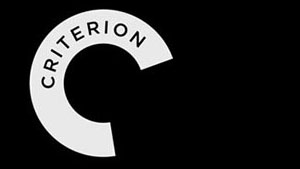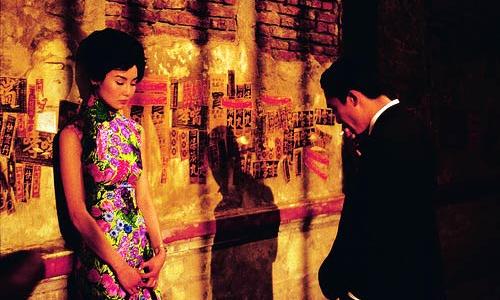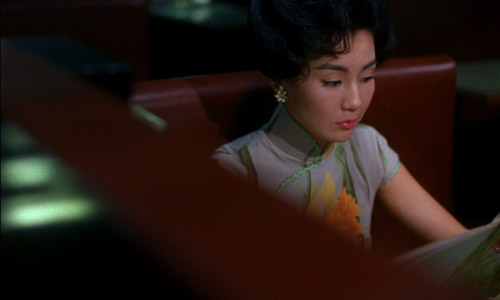
In the Mood For Love:
Directed by: Wong Kar-wai
Written by: Wong Kar-wai
Starring: Tony Leung, Maggie Cheung
Cinematography by: Christopher Doyle
Music by: Michael Galasso, Shigeru Umebayashi
Released: September 29th, 2000
 Wong Kar-wai’s role as a cinematic innovator on a local level has been well-established since the 90s, when Days of Being Wild— which announced his arrival to the film world despite being his sophomore effort– saw him strive to break away from the storytelling and artistic standards typical of most Chinese cinema of the period. Arguably, Wong didn’t really come into his own until 1994, the year he unveiled both Ashes of Time and Chungking Express to critics and audiences alike; in both pictures, Wong confronted the cinematic language used by his peers head-on by employing new filmmaking techniques (like step-printing, a jerky, animated slow motion variant) and by exploring new narrative pastures (as in the presence of ambiguity in his plots, formerly an alien concept in the country’s surplus of fluff cinema).
Wong Kar-wai’s role as a cinematic innovator on a local level has been well-established since the 90s, when Days of Being Wild— which announced his arrival to the film world despite being his sophomore effort– saw him strive to break away from the storytelling and artistic standards typical of most Chinese cinema of the period. Arguably, Wong didn’t really come into his own until 1994, the year he unveiled both Ashes of Time and Chungking Express to critics and audiences alike; in both pictures, Wong confronted the cinematic language used by his peers head-on by employing new filmmaking techniques (like step-printing, a jerky, animated slow motion variant) and by exploring new narrative pastures (as in the presence of ambiguity in his plots, formerly an alien concept in the country’s surplus of fluff cinema).
It wasn’t until 2000, though, that Wong managed to attain visibility in mainstream art house film circles. Considered by many to be his best film, In the Mood For Love— though it may well be that– certainly deserves recognition as his most important film if only because it introduced the name “Wong Kar-wai” to a larger and more varied viewership, to say nothing of how it serves as a document of his ever-evolving, constantly growing style and sense of craft. Perhaps the movie’s most notable characteristic is that it stands on its own even though it’s the second installment in a trilogy which begins with Days of Being Wild (in which Maggie Cheung plays a character with the same name as her character here) and ends with 2046, a lush, vivid, avant-garde attempt at creating meaning through imagery over than dialogue. (Though interestingly enough, Wong’s original vision for In the Mood For Love sounds much closer to 2046 than what the film wound up being.)
However many praiseworthy qualities can be mined out of In the Mood For Love without so much as a mention of its content, the greatest feat Wong achieves here is high sensuality with a dearth of physical romance and human contact. In fact, one could easily be argued that the film portrays and delves into the loneliness and isolation of its principal characters first and foremost, offering eroticism and restrained passion as secondary themes to be explored only within context of that aforementioned heartache. How can a film raise pulses without ever allowing its two leads to even so much as kiss? Wong performs this particular stunt with aplomb and makes it look easy, but the truth is that fostering sexual tension between perfect strangers Chow Mo-wan (Tony Leung) and Su Li-zhen (Maggie Cheung) requires the patience and care of a master filmmaker; it’s difficult to imagine other, hastier directors accomplishing the same effect.
That’s because Wong knows how to take his time with his narratives. He paces his films slowly, not in any non-complimentary fashion but rather in deliberate, meaningful ways. A better phrase might be “measured”; there’s a gradual purpose to his films’ unhurried gaits. In the case of In the Mood For Love, that calm sense of forward momentum heightens the repressed emotions Mo-wan and Li-zhen feel toward both one another and their individual struggles with spousal infidelity.

Not their own, of course. Mo-wan and Li-zhen, apartment tenants and neighbors in 1960s Hong Kong, are respectively married to partners who work inordinately long, late hours; a third of the way into the film’s running time, they both realize that their spouses have been engaging in an extramarital affair together. Truthfully, that realization is more of an acceptance of what Mo-wan and Li-zhen have suspected has been going on the entire time. Regardless of the pain their shared conclusion inflicts on them, the pair connect out of a need for succor rather than intimacy or getting even, and so they resolve not to behave unfaithfully themselves.
Instead they play detective, walking the claustrophobic city streets and eating at fancy restaurants in the name of recreating their spouses’ rendezvous’– or at least what they imagine them to have looked like. The reality is that they may never know how Mr. Su and Mrs. Chow began their affair together, but if In the Mood For Love tells us anything it’s that emotional withdrawal combined with chance encounters makes for a powerful cocktail; that is, after all, the basis for Li-zhen’s and Mo-wan’s own relationship. In the end the particulars of the illicit liaison don’t matter, though– what does is the profound sense of lonesomeness it induces in Wong’s principals.
In the Mood For Love lingers on such moments. More than the quiet, humming desire that eventually grows between Mo-wan and Li-zhen, the film emphasizes the spiritual desolation that draws them together. Carefully, delicately, Wong draws out the walks that both characters take from their cramped apartments to the food stalls nestled within the tightly-organized buildings that crowd Hong Kong’s urban sprawl. (Though it’s worth noting that In the Mood For Love happens to have been shot in Bangkok. Wong’s crew fastidiously transposed the Chinese period experience upon a Thai backdrop.) With multiple slow motion sequences of Mo-wan and Li-zhen separately trekking to noodle bars, bumping into each other by happenstance along the way, Wong almost appears to be suggesting that there’s no better indicator of loneliness than dining alone– though it is also telling that Li-zhen’s loneliness impels her to unwittingly reach out to the very woman who is fooling around with her husband.

The film’s ending beat, which unfolds within the quietude of Angkor Wat, gently drives home the sense of isolation that pervades the rest of the narrative. Mo-wan and Li-zhen drift apart; he moves to Singapore, she remains in Hong Kong, and though both of them take strides to reunite, their efforts end up being in vain (courtesy of either strokes of fate or poor timing, depending on your perspective). The heartbreak of their lives’ divergence eventually moves Mo-wan to travel to that ancient aforementioned temple and whisper a secret– presumably his love for Li-zhen, and all the details of their nuanced courtship– into a hollow before covering it with mud. It’s a moment of utmost finality, one that solidifies their segregation for all time and very nearly condemns them to remain alone, perhaps forever.
Four years after In the Mood For Love‘s release, Wong offered 2046 in service of answering the former’s lasting questions. Interestingly, 2046 only deals with Mo-wan; by the end of In the Mood For Love we may assume that Li-zhen, who gives birth to a son (off-screen) in the years that pass during the film’s third act, has moved on from her failed relationship with Mo-wan while he has turned to old stories and platitudes to assuage himself of his emotional suffering. It’s a beautiful tragedy, captured in sumptuous, lush vividness and soft, colorful tones by Christopher Doyle and Mark Lee Ping Bin; in another manner of speaking, In the Mood For Love is unequivocally the most definitive, essential work of Wong’s career, the pinnacle of the shared themes and stylistic flourishes that pepper the rest of his filmography.

2 Comments
Dan Heaton
Andrew, I caught In the Mood for Love for the first time last year, and I loved every minute of it. It caused me to start a marathon to go through most of Wong Kar Wai’s other movies. You cover all the main reasons for why it’s so great, and this is an excellent post.
Andrew Crump
Would you believe that I actually enjoyed writing this more than any other Criterion File I’ve done so far? Revisiting In the Mood For Love made me think about finding a spot for it on my personal top ten. Such a terrific film– and I’m glad you feel the same way! Thanks Dan!